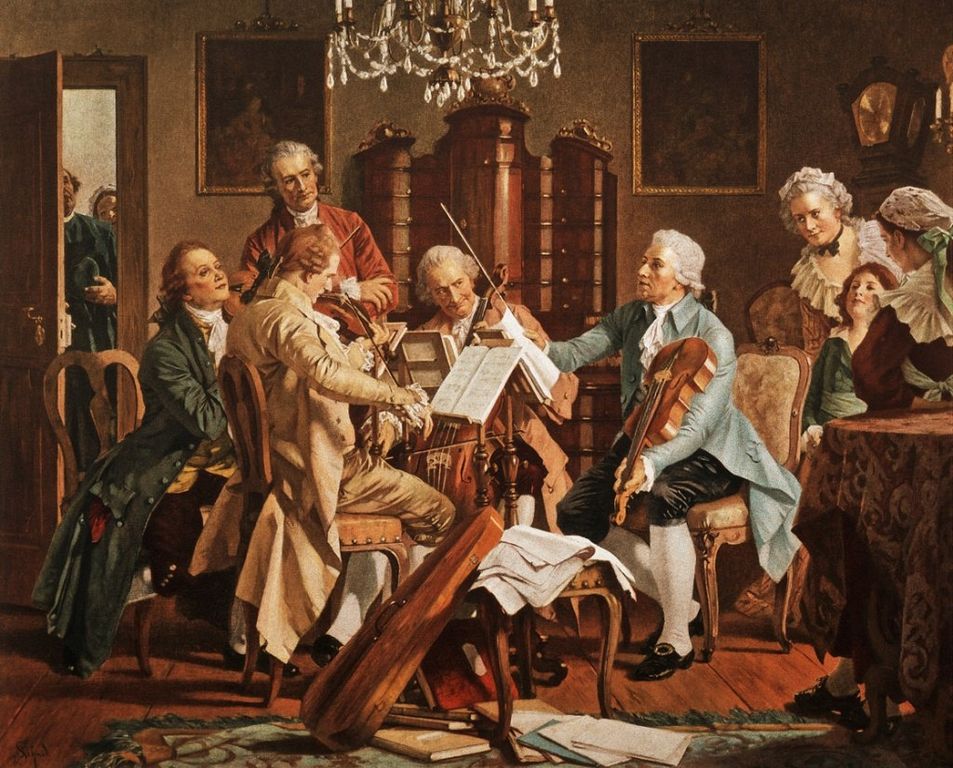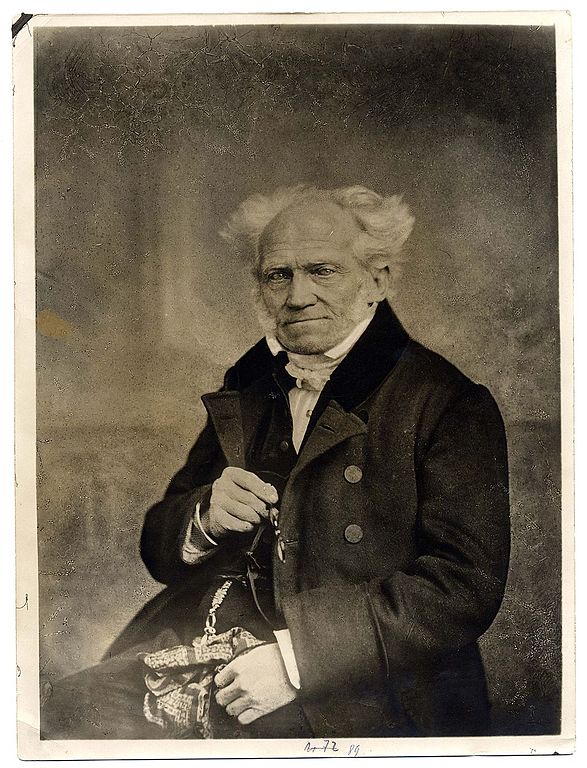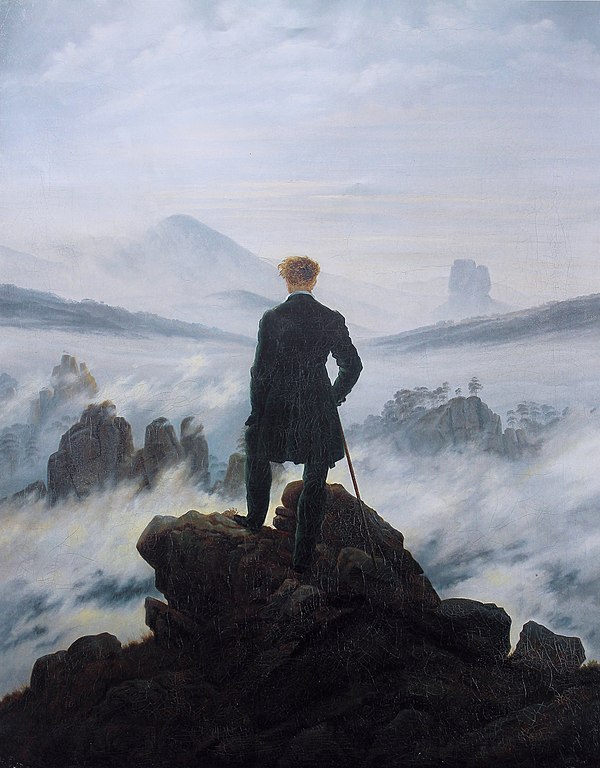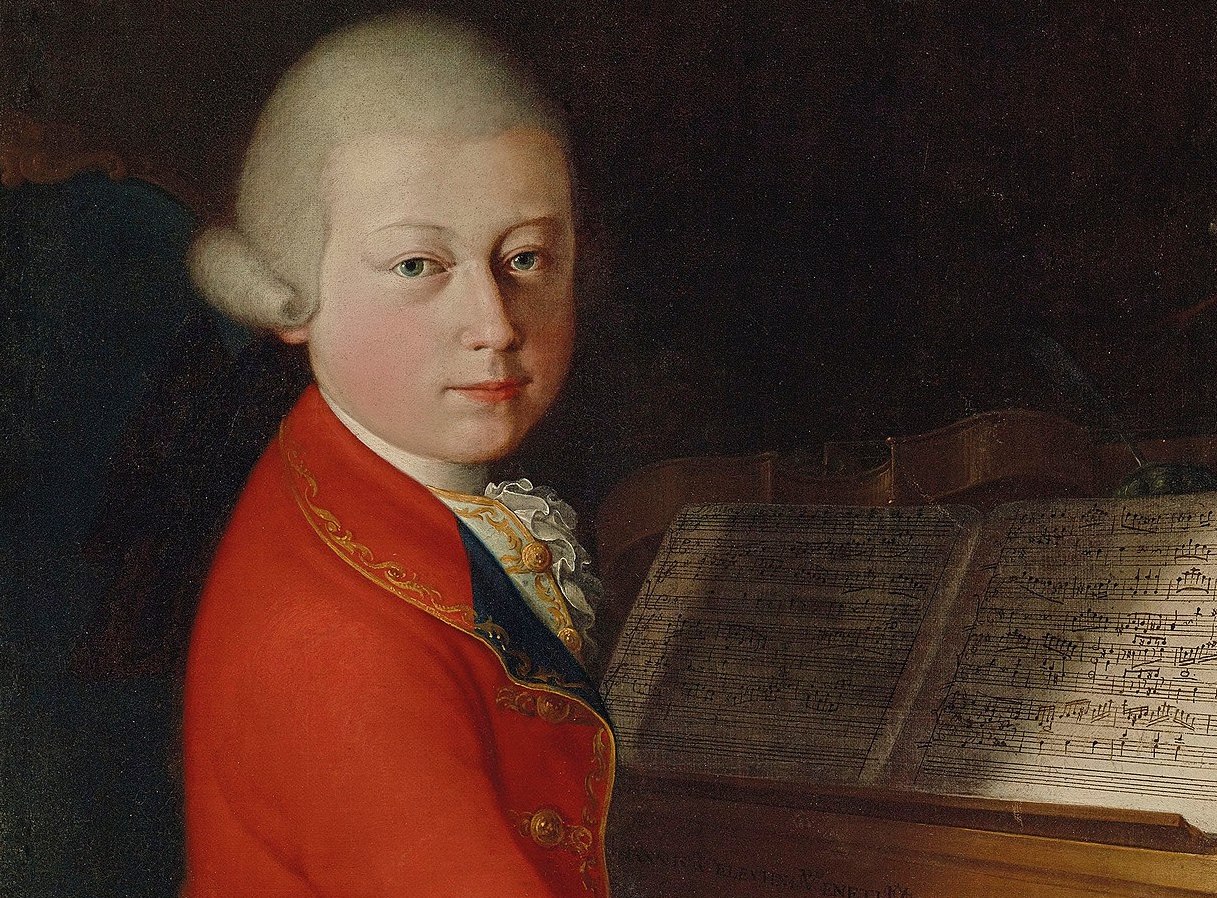Why Arthur Schopenhauer thought music was the greatest of all artforms

- Schopenhauer considered music to be the greatest of all artforms, rising head and shoulders above painting, sculpture, and even writing.
- This was because, in his eyes, music was not a copy of what he believed to be a higher truth but a direct manifestation of it.
- When we listen to music, we are able to lose track of ourselves, and in doing so, become free from the struggles of our daily lives.
While the music tastes of any two people may vary drastically, you would have to look far and wide to find a person who would claim that the artform has failed to touch them in a profound manner. Regardless of whether you prefer to listen to classical symphonies or hardcore techno, there is something about music as a medium that resonates with us on a deeply personal level. But although its power can be sensed almost instantaneously, we still do not understand fully where it comes from.
Music may well be as old as mankind itself, and across the centuries, numerous philosophers have tried to explain our relationship with it. Henry David Thoreau once said music made him feel “invulnerable” and unafraid. In the words of Napoleon Bonaparte, “Music is what tells us the human race is greater than we realize.” Friedrich Nietzsche, a classically trained pianist who composed his first works when he was only 18 years old, exclaimed that without music, “life would be a mistake.”
Few, however, have been as thorough in their analysis as Arthur Schopenhauer. Born in 1788 in what is now Gdańsk, Poland, the German thinker argued that music was the noblest, greatest, and most significant of all artforms. Not only does it rise head and shoulders above other mediums like painting and literature, it is also the only one capable of channeling what Schopenhauer believed was the higher truth that governs the world and everything in it.
His analysis of the medium, found in his all-encompassing book, The World as Will and Representation, was based not on emotion but reason. Rather than ranking artforms by his personal opinion, Schopenhauer judged music through the lens of his philosophical worldview. Though his theories have been disputed several times since his death in 1860, they still provide an interesting and logically consistent argument for why music is the highest form of expression known to man.
The will to live
Schopenhauer was a systemic thinker, someone who was under the impression that all events, past, present, and future, were dictated by a set of interrelated metaphysical laws. This means that, in order to discuss his thoughts on music, we must first understand his interpretation of reality itself. Schopenhauer’s philosophy is centered on a concept which he referred to as the Wille zum Leben or the “will to live.”
In his book, Schopenhauer defined the Will as a “blind incessant impulse” that dictated the existence of both organic and inorganic matter. In human beings, the Will manifested itself in the form of a desire. Although many have likened Schopenhauer’s Will to the struggle for survival as outlined by Charles Darwin, it is actually a bit more complicated than that. Put simply, the Will is the ultimate, singular, and undefinable object of our most primordial instincts.

For the purposes of this discussion, though, all you need to know about the Will is that it is insatiable. Like the grapes dangling just outside of starving Tantalus’ reach, the Will points us toward a destination we can never reach yet which we continue to move toward. This irony, said Schopenhauer, was the root cause of all suffering. In Buddhist fashion, he argued that — in order to be truly at peace with ourselves — we had to break with the Will and the things that made us human.
Though asceticism — the indefinite renunciation of all instinct and desire — is the easiest and most effective way of doing so, it is not for everyone. Fortunately, those who do not wish to live the rest of their lives as monks can still find a temporary release from the Will and the constant agony born from its insatiability. This release, attests Schopenhauer, could be found in the contemplation of high arts.
The purpose of art
In The World as Will and Representation, Schopenhauer likens the elusive, often melancholic feeling that art can stir within us to the one that washes over us when we stumble across an impressive feat of nature. When we climb a towering mountain range, venture into a sprawling valley, or even just look down upon our hometown from the airplane window when we go on holiday, the seemingly endless splendor of the world itself puts one’s own existence into a fresh perspective.
Compared to these awe-inspiring vistas, our daily struggles seem so small and insignificant that they might as well not exist at all. Wrote Schopenhauer: “Whoever now has become so absorbed and lost in the perception of nature becomes directly conscious that he is the condition, the supporter, of the world and all objective existence. In this way Byron says: ‘Are not the mountains, waves, and skies, a part of me and my soul, as I of them?’”
Though this form of ego-death might look intimidating to some, Schopenhauer believed that people ought to welcome and indeed pursue it. For if the Will is intimately tied to our conception of the self, then by losing this sense of self in order to become one with the world around us would logically diminish both the Will and the aforementioned suffering of which it is the cause. Put differently, the more we are able to forget who we are, the freer we become.
The same process, Schopenhauer believed, could be facilitated by art, which tries to find the universal in the personal, the timelessness in the contemporary, and the infinite in the finite. “Losing ourselves” in a beautiful painting or a good book is no different from the feeling we experience when we spend time with nature. “The true work of art,” wrote Schopenhauer, “leads us from that which exists only once to that which exists perpetually and time and again in innumerable manifestations.”
Will and representation
Upon first glance, Schopenhauer’s worldview looks suspiciously like Plato’s. Just as with the Greek philosopher, Schopenhauer made a distinction between something abstract and undefinable — what he referred to as the “thing in itself” — and its real-world appearance or representation. Hence came the title of his book, The World as Will and Representation. It is through these concepts, this hierarchy of values, that Schopenhauer proceeds to argue why music is the superior artform.
“It stands alone,” Schopenhauer wrote of the medium, “quite cut off from all the other arts. In it we do not recognize the copy or repetition of any idea of existence in the world. Yet it is such a great and exceedingly noble art, its effect on the inmost nature of man is so powerful, and it is so entirely and deeply understood by him in his inmost consciousness as a perfectly universal language, the distinctness of which surpasses even that of the perceptible world itself.”

Looking at the other artforms, Schopenhauer found that most if not all of them were merely representations of the thing-in-itself rather than extensions of it. As the YouTuber Weltgeist explained in a video, when a painter tries to paint a hand, he tries to paint what he perceives as the perfect hand. However, the perfect hand does not exist in the material world; it only exists in the abstract one, in the form of a Platonic ideal. As such, all that the painter can do is emulate this idea.
Put differently, most artistic mediums are stand-ins for the things that artists want to represent. The painter uses pigments which, when applied on a canvas, depict an object. The sculptor uses clay or marble which, when molded into a particular shape, resemble something other than the material itself. The writer uses words which, when arranged in a specific order, acquire meaning and significance that did not exist before.
Schopenhauer on music
Music is different from all other artforms because it alone is an expression of itself rather than something else. Notes and melodies, unlike phrases and colors, do not try to represent anything but can instead be appreciated simply for what they are. Rather than representing the Will through indirect means as depictions of its real-world manifestations, Schopenhauer believed music was a direct manifestation of the Will itself.
Consequently, when we listen to music, we feel as though we instantly connect with a higher truth, whatever that truth may be. “Music,” wrote Schopenhauer, “is by no means like the other arts, the copy of the Ideas, but the copy of the Will itself, whose objectivity the Ideas are. This is why the effect of music is so much more powerful and penetrating than that of any of the other arts, for they only speak of shadows, but it [music] speaks of the thing itself.”
Schopenhauer’s ideas, while hundreds of years old, continue to ring true today. They explain, for instance, why movie soundtracks — a relatively small and seemingly subservient part of the cinematic experience — hold such tremendous sway over audiences. More often than not, acting, editing, and cinematography in fact serve as extensions of the soundtrack, as it is the music and the music alone that channels whatever truth the film is trying to get at.
It must be noted that Schopenhauer was mostly concerned with what we call “absolute” or “pure” music. This genre, which emerged at the start of the philosopher’s academic career and was popularized by the composer Richard Wagner, is described as not being “about” anything. Devoid of lyrics, listeners are able to see the Will for what it really is: an unhindered expression of the metaphysical.





